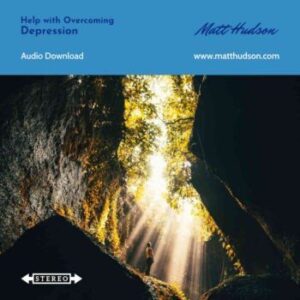Description
What is bereavement?
Definition of bereavement, grieving or grief?
Pregnancy loss/miscarriage
Mourning the loss of someone
Physical manifestations of grief
Grief is a whole chunk of information that directly impacts the body triggering the auto-immune system. This flow of information can then flood the body with inflammation. Inflammation can create:
- Pain (chronic and acute)
- Swelling
- Loss of function
- Diabetes
- Allergies
- Psoriasis
- Rheumatoid Arthritis
- Chronic Obstructive Pulmonary Disease (COPD)
- Cardiovascular disease (CVD)
What is the bereavement process?
Bereavement or loss is a natural process that we all go through at some point in our life. The only time that it becomes unnatural is when we get stuck in a part of the process. Elizabeth Kübler-Ross, the Swiss psychologist theorised the “5 stages of grief” in 1969. Today there are 7 stages recognised. See below for the stages:
- Shock and disbelief – this is a stage of shock and denial, when you simply don’t want what has happened to have happened.
- Denial – perceiving the end of the relationship with many ‘what ifs’ and ‘if onlys’.
- Guilt – distraught with the fear of loss, anger and a sense of unfairness grows. What could you have done differently? How could you have prevented it from happening?
- Anger and bargaining – being left alone after the funeral and the comfort of your friends has gone, can lead to bitterness, blaming and directing your anger towards the deceased. This leads to even more guilt. The bargaining creeps in around this stage and you’ll begin to wish them back, saying things like “I would change if I could only have them back”.
- Depression, loneliness and reflection – this period can only come after the other stages have passed. You may actually feel lonelier and more isolated from your friends and loved ones as your thoughts move inwards. This search for meaning within yourself can also leave others feeling they can’t approach you as you’re quite literally not there.
- Reconstruction or working through – this is a point where you’re almost through to the other side of your bereavement journey. You can still find yourself slipping all the way back to the beginning again, like snakes and ladders, this is perfectly normal. The realisation is forming that life goes on.
- Acceptance – as the word denotes this is the stage where you’ve worked through your grief and are ready to begin again.
I would like to add an additional consideration within the bereavement process. With over 25 years’ experience working with bereaved individuals and families, I note that if an emotional memory image of the deceased is locked inside the mind of the bereaved, then the grief will remain for the foreseeable future. It is vital therefore, that the emotional memory image (EMI) is moved to a place of prominence within the individual’s visual field and outside of central focus. This is a key finding, if not administered effectively after the duration of approximately 12 months, giving time for the standard grief process, then the bereaved can remain trapped within the cycle.
How do you get over the death of a loved one?
There is a set of stages that we all must go through in order to get over the death of a loved one. Please see below:
- Shock and disbelief – this is a stage of shock and denial, when you simply don’t want what has happened to have happened.
- Denial – perceiving the end of the relationship with many ‘what ifs’ and ‘if onlys’.
- Guilt – distraught with the fear of loss, anger and a sense of unfairness grows. What could you have done differently? How could you have prevented it from happening?
- Anger and bargaining – being left alone after the funeral and the comfort of your friends has gone, can lead to bitterness, blaming and directing your anger towards the deceased. This leads to even more guilt. The bargaining creeps in around this stage and you’ll begin to wish them back, saying things like “I would change if I could only have them back”.
- Depression, loneliness and reflection – this period can only come after the other stages have passed. You may actually feel lonelier and more isolated from your friends and loved ones as your thoughts move inwards. This search for meaning within yourself can also leave others feeling they can’t approach you as you’re quite literally not there.
- Reconstruction or working through – this is a point where you’re almost through to the other side of your bereavement journey. You can still find yourself slipping all the way back to the beginning again, like snakes and ladders, this is perfectly normal. The realisation is forming that life goes on.
- Acceptance – as the word denotes this is the stage where you’ve worked through your grief and are ready to begin again.
If you have gone through these stages and are struggling with acceptance, then it could be that you still have the final image of the deceased running through your mind. In which case, this emotional memory image (EMI) needs to be moved to the other side of your mind. That’s where spiritualists get the saying “they’ve passed over”, or “they’ve gone to the other side”. Usually, it is guilt that prevents this move, so helping you to clear the EMI, actually clears the guilt associated with the memory. However, if you simply work with the guilt, you could be in therapy a long time as the EMI still remains.
How long is the grieving process?
Does hypnosis/hypnotherapy work for bereavement?
My Audio Download
Matt’s calming, assuring voice gently guides both your conscious mind and unconscious mind towards healing through the left and right ear respectively. By tapping into the body’s psychoneuroimmunilogical mechanisms – the link between the mind, nervous system and physical wellbeing – this audio allows you to regain mental control and find emotional balance once again.
For best results, listen to this audio download first thing in the morning or during the day, every day for 4 weeks. Ensure you’re free from interruptions and distractions when listening. Download now to start overcoming bereavement today.
This audio is a .MP3 file, compatible with smartphones, tablets, PC’s and other electronic devices.
Audio length: 30 minutes.





